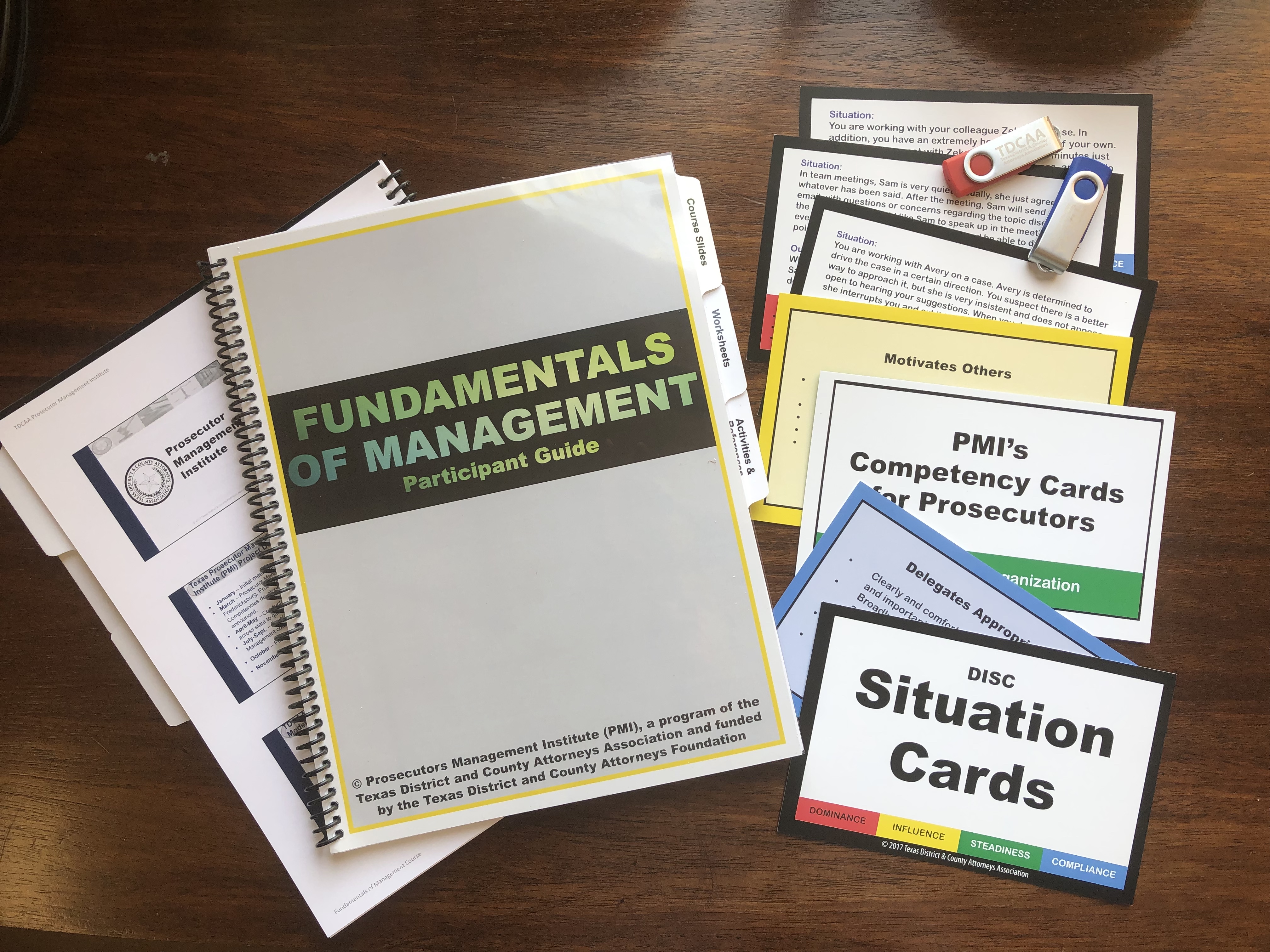Now that the Austin bombings are behind us and we can start looking ahead to the next session, who wants to bet that some new legislation will come from this crisis? It’s hard for politicians to resist legislating on any topic that grabs the voting public’s attention like that, regardless of whether there’s a need for a new law or not. We put the over/under on number of Austin bomber-related bills next session at 4.5; place your wagers now.
Update on guns in courthouses
Remember this issue that grabbed everyone’s attention last interim? Well, it’s still being litigated. For the latest update on the three-year saga over whether cities and counties can exclude certain licensed handgun owners from bringing their sidearms into local courthouses, read this recent legislative update from the Texas Municipal League regarding events in Waller County (used with permission of the TML author).
Changes to campaign finance filings for DAs?
Currently, the location in which a district attorney files his or her campaign finance paperwork varies by jurisdiction: Multi-county DAs file with the Texas Ethics Commission (TEC), while single-county DAs file in their local county, even though those same single-county DAs file their personal financial statements with the TEC. To improve uniformity and transparency for the public, the TEC may ask the next legislature to require single-county DAs to file their campaign finance reports with the TEC so that all of those records are held in one centralized location. (Note that none of this would affect county attorneys.) If this concerns you, contact Shannon for more information.
Interim committee hearings
With primary elections over, a flurry of interim hearings occurred during the latter part of this month. Here are some highlights.
A House Appropriations subcommittee reviewed the progress made by DFPS in the aftermath of legislative “fixes” passed last session and heard that CPS caseworkers’ average caseloads were decreasing, their retention on the job is increasing, and their face-to-face contacts with suspected abuse victims are also increasing. However, Adult Protective Services (APS) caseworker turnover remains high because they did not see the same raises as CPS caseworkers, among other factors. On the mental health side of the budget, the committee heard from HHSC that five state hospitals need to be replaced, five more need substantial remodeling, and the agency projects a need for 11,000 additional inpatient psychiatric beds over the next decade. (No word on if or how *that* will be funded, but everyone can dream, right?)
The House Criminal Jurisprudence Committee spent the better part of a day discussing the death penalty with the usual suspects, although this hearing had a particular focus on its application to defendants with intellectual disabilities and serious mental illnesses and on the jury instructions used in the sentencing phase of capital cases. That discussion included testimony from Court of Criminal Appeals Judge Elsa Alcala, who provided the committee members with a list of nine potential reforms to the state’s capital punishment laws based on various cases the court has considered over the years (contact Shannon if you’d like a copy of that written testimony).
The House Select Committee on Opioids & Substance Abuse held its first hearing, which consisted mostly of a broad overview of the current opioid abuse situation (both nationally and in Texas). Among the interesting information that came out at this hearing was testimony that even though Texas is doing better than many states, it has still experienced a 32% increase in opioid overdoses since 2014. In addition, while only 14 percent (~19,000) of all TDCJ inmates are incarcerated for drug offenses, more than half of all inmates are in need of drug treatment when they arrive at TDCJ.
The House Government Transparency & OperationsCommittee reviewed the need for greater flexibility in the open meetings law during natural disasters but came to no conclusions as of yet.
And last but not least, the Sunset Advisory Commission met for the first time under its new chairman, State Sen. Brian Birdwell (R-Granbury), to preview the 31 state agencies it will be considering for revision and re-authorization next session, the most high-profile of which are DPS, DMV, and TABC. We’ll be sure to keep an eye on that review process and alert you if anything interesting comes up.
Future interim hearings
Relevant hearings posted for April (with links to official notices) include:
House Appropriations Subcommittee
Wednesday, April 18, 8:00 a.m., State Capitol Room E1.026
CHARGES: State crime lab funding mechanisms (including fees for services); funding formulas for adult and juvenile probation departments; rape kit backlogs.
House Appropriations Committee
Wednesday, April 18, 10:00 a.m., State Capitol Room E1.030
CHARGES: border security (and several other unrelated topics)
House Criminal Jurisprudence Committee
Thursday, April 26, 10:00 a.m., at El Paso City Hall
CHARGES: Examine the use of alternative punishments to criminal enforcement and community supervision for low-level possession of marijuana; monitor the implementation of relevant legislation passed by the 85th Legislature.
House Judiciary & Civil Jurisprudence Committee
Friday, April 27, 10:00 a.m., State Capitol Room E2.026
CHARGES: Impact of Hurricane Harvey on the state’s court system; simplifying and improving the state’s fee structure in civil and criminal cases; implementation of the statewide electronic database of court records (“re:SearchTX”).
If you have questions about any of these hearings, please contact Shannon for more details.
Upcoming TDCAA training opportunities
Our annual Civil Law Seminar will be held in Corpus Christi on May 16–18 of this year. Whether you are a full-time civil practitioner, an occasional fill-in, or someone considering a move to a side of the office you haven’t been a part of before, this training is for you. Come join us for three days of relevant, timely training designed for you by your peers. Click here for registration and related information.
Registration has also opened for TDCAA’s Forensic Evidence Seminar. From DNA to firearms, this course will provide prosecutors and their investigators with the knowledge and skills necessary to see justice done. The course will be held June 13–15 in Dallas. For more information, click here!
CLE scholarships available
The Criminal Justice Section of the State Bar of Texas is taking Applications for Scholarships for the courses listed below. You must be a current member of the Criminal Justice Section to apply. Preference will be given to lawyers licensed five years or less. Scholarship applications should be sent to the SBOT Sections Department and must be received no later than April 27, 2018.
- 44th Annual Advanced Criminal Law Seminar, San Antonio, July 23–26, 2018
- Criminal Law Boot Camp 101, San Antonio, July 22, 2018
- Video Presentations for Advanced Criminal Law Seminar, Dallas, September 5–7, 2018 & Houston, September 19–21, 2018
- 31st Annual Rusty Duncan Advanced Criminal Law Course, San Antonio, June 21–23, 2018
- TDCAA Annual Criminal and Civil Law Conference, Galveston, September 19–21, 2018
Quotes of the Month
“I’ve been thrown out of better places than this.”
Arizona State Representative Don Shooter (R-Yuma), after the Arizona House of Representatives expelled him for “dishonorable” behavior, including allegations that he sexually harassed women for years.
“People are starting to understand … the DA to them is more important in many ways to their daily life than who’s the governor of Texas or who’s the president of the United States.”
Rob Smith, director of the Fair Punishment Project, arguing that the usual 15–25 percent turnover in Texas prosecutor offices is an indicator of criminal justice reformers’ success at the ballot box.
“Home Depot isn’t in the business of serving terrorists, but sometimes it does.”
Professor Jimmie Oxley,co-director of the University of Rhode Island’s Center of Excellence for Explosives Detection, Mitigation and Response, explaining how the Austin bombing suspect obtained bomb-making materials so easily.
“It can never be called a happy ending, but it’s a damn good one for the people of this community and the State of Texas.”
Travis County DA Margaret Moore, after Austin’s recent bombing spree ended with the self-inflicted death of the suspected bomber.



